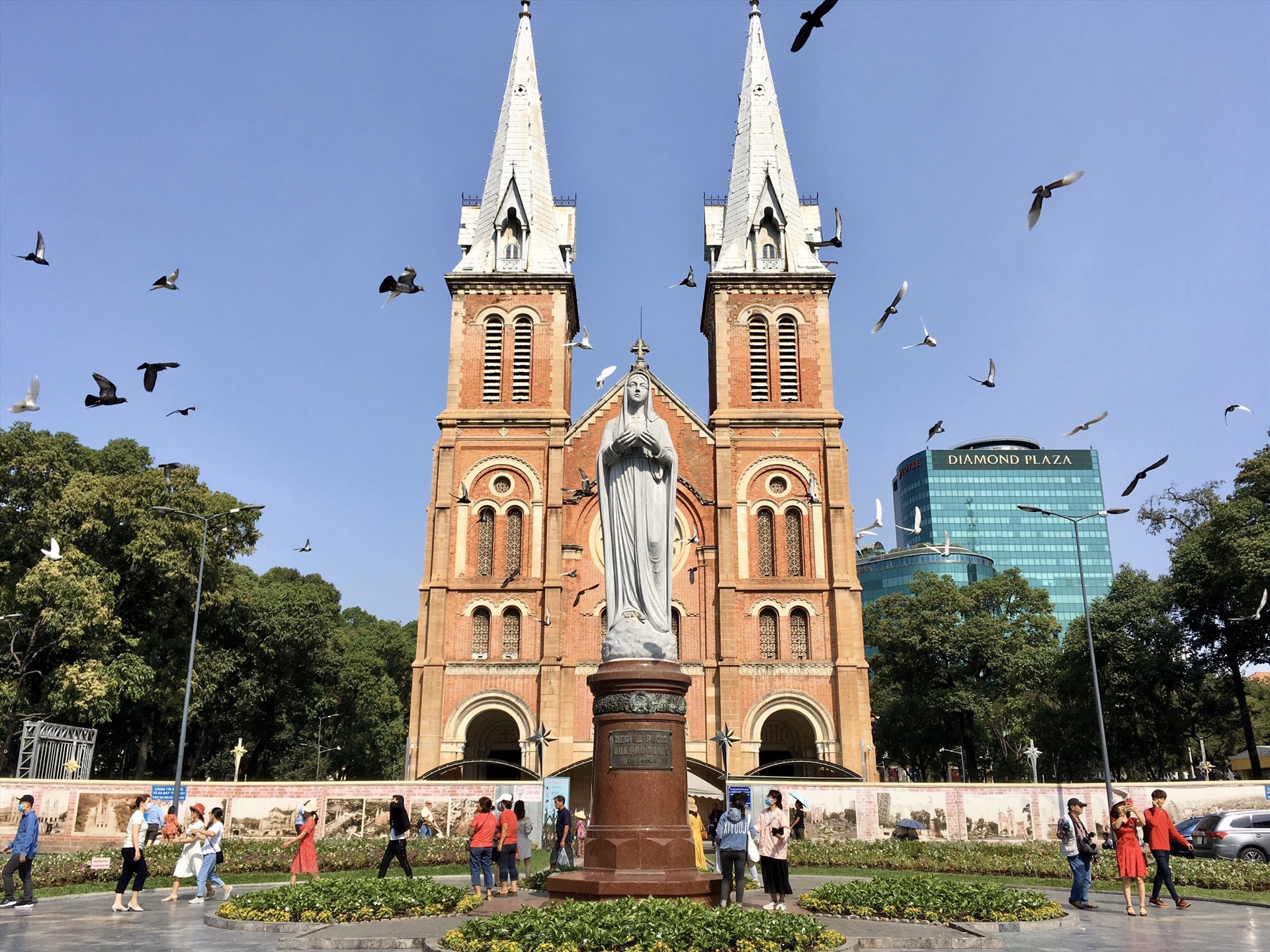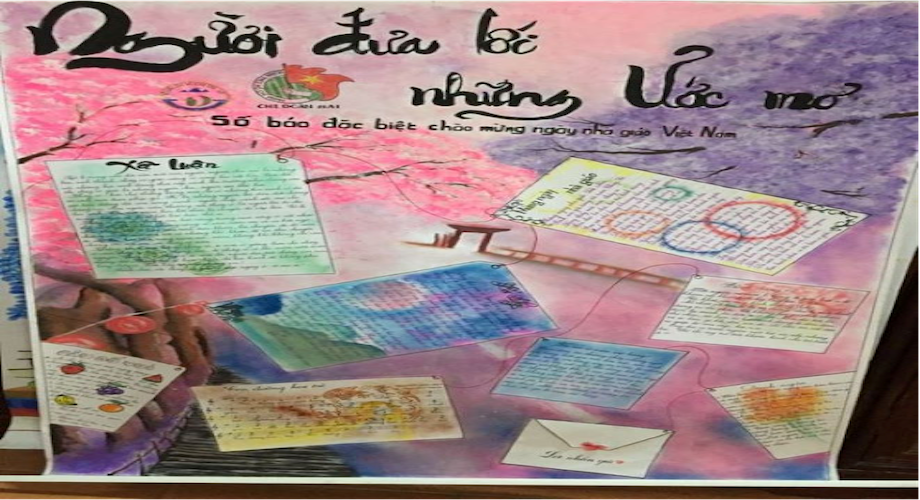The origins and significance of the 15th day of the 7th Lunar month in East Asian culture
Date: 2025.09.04
Meaning and origins
The 15th day of the 7th lunar month, also known as “Rằm tháng Bảy” in Vietnamese, corresponds to September 6, 2025 in the solar calendar that year. It is one of the most important and long-standing traditional festivals deeply connected to the spiritual life of the Vietnamese people, as well as many other Asian cultures.
Also referred to as the “Tết Trung Nguyên” or the “Day of Pardoning the Spirits of the Dead,” this day holds deep significance in East Asian customs. According to folk beliefs, the 7th lunar month is the time when King Yama (Diêm Vương) opens the gates of the underworld—”Quỷ Môn Quan”—allowing wandering spirits to return to the human world. For this reason, the month is commonly known as the “Ghost Month” (tháng cô hồn) in Vietnamese tradition.
In Buddhism, The 15th day of the 7th lunar month is observed as Vu Lan Festival, a day of filial piety. The festival originates from the story of Maudgalyayana (Mục Kiền Liên), a disciple of the Buddha, who rescued his mother from the realm of hungry ghosts. The Buddha taught that this day should be dedicated to honoring and repaying the gratitude owed to parents and ancestors, as well as offering alms to monks and transferring the merit to one’s deceased loved ones.
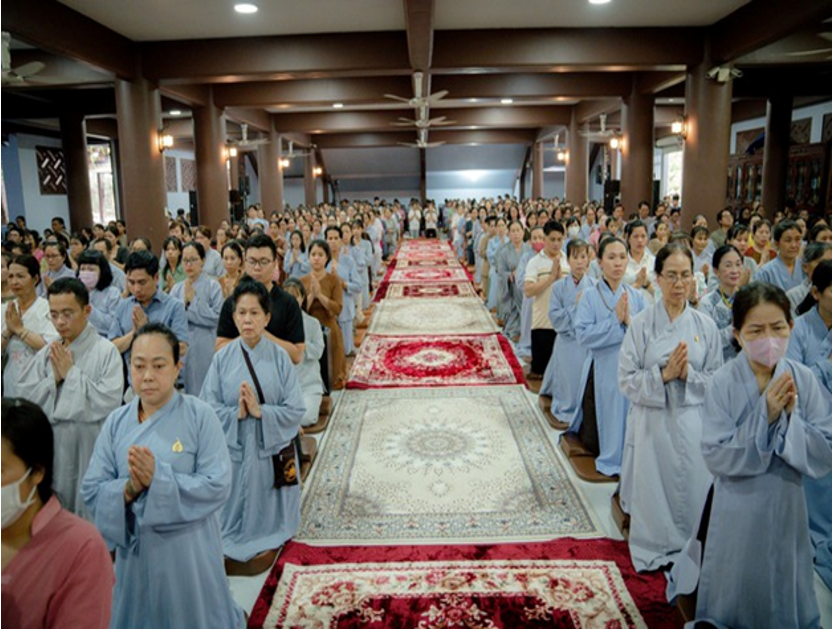
Activities on the 15th day of the 7th Lunar month in Vietnam
On this day, families typically prepare offerings to present to their ancestors as a way of honoring, remembering, and expressing gratitude for the love and upbringing received from parents and forebears. In addition to ancestral rites, many households also perform the “cúng thí thực” (offering to wandering souls), with items such as thin porridge, rice, salt, candies, and other food placed as offerings to comfort lost or forgotten spirits.
At temples, the Vu Lan Festival is solemnly observed through various Buddhist rituals, including sutra chanting, requiem ceremonies, the rose-pinning ritual (lễ bông hồng cài áo), and compassionate almsgiving ceremonies (trai đàn chẩn tế). These activities serve to promote filial piety and foster a spirit of compassion in each individual. Additionally, the practice of releasing animals such as birds and fish back into nature (phóng sinh) is also widely performed as a way of accumulating merit and spreading kindness.
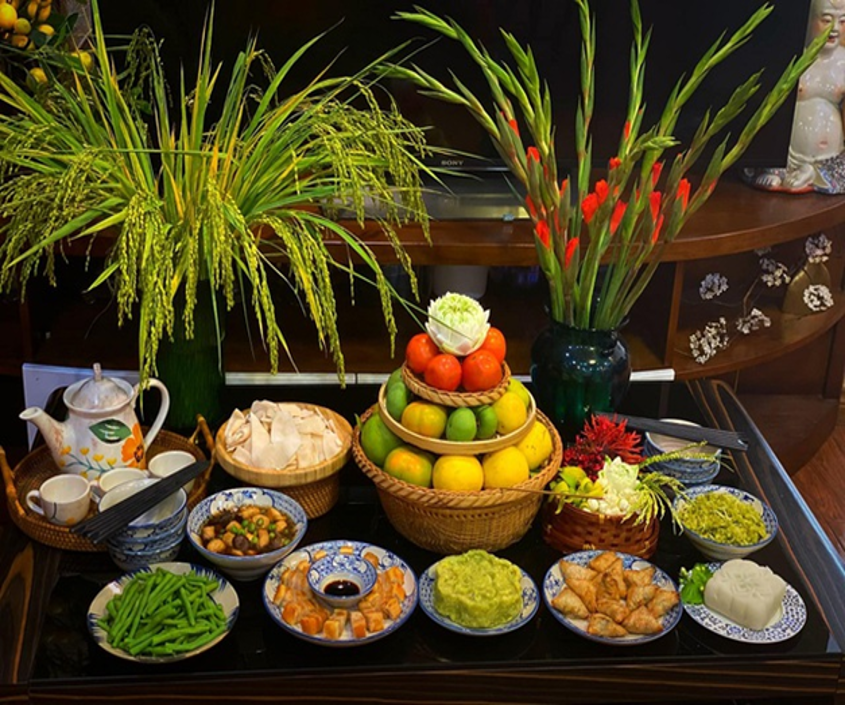
The 15th day of the 7th Lunar month across various countries
The 15th day of the 7th Lunar month is observed not only in Vietnam but also in many cultures across Asia:
👉 China: The ritual to honor wandering spirits is called Tiết Trung Nguyên, known in Vietnamese as Tết Trung Nguyên. Chinese Buddhists celebrate this festival from the beginning of the 7th Lunar month until the 30th. Ceremonies are often held in the evening or at night, based on the belief that spirits escape from hell at sunset. Monks and ritual masters scatter rice and small food offerings into the air in all directions to share with the spirits.
👉 Taiwan: Taiwan’s Ghost Festival features the longstanding custom of releasing floating lanterns, along with large-scale spirit parades nationwide. The festivities include procession floats carrying effigies, fruits, and traditional lion dances.
👉 Hong Kong: Hong Kong hosts one of the largest celebrations of the 7th lunar month festival in Asia. The main ceremonies take place at temples and shrines over three days—14th, 15th, and 16th of the Lunar month—and are recognized as an important intangible cultural heritage of Hong Kong.
👉 Singapore: A distinctive feature of the Vu Lan season in Singapore is the “getai” performances held for wandering spirits. This festival also serves as a time to honor deceased loved ones. Popular celebration spots include Chinatown and the Lorong Koo Chye Sheng Hong Temple, dedicated to Taoist worship.
👉 Malaysia: The 7th Lunar month festival, known as the Hungry Ghost Festival, is considered one of the year’s most significant events. People prepare lavish meals to offer ancestors, burn large paper effigies, hold outdoor banquets, organize performances, and pray together.
👉 Indonesia: Known locally as Chit Gwee Pua, the festival sees people gathering at temples with offerings for less fortunate spirits. The offerings are later distributed to the poor. The lively scene of people competing for offerings is a unique highlight of Chit Gwee Pua on Java island. In North Sumatra, Riau, and the Riau Islands, traditional Getai stages are organized, reflecting customs similar to those of the Chinese communities in Malaysia and Singapore.
👉 Japan: The 7th Lunar month’s full moon day is called Chugen. During this time, the Obon Festival is celebrated as a Buddhist event to honor and express gratitude to ancestors. The festival usually lasts for about three days, from the 13th to the 15th of the lunar month.
👉 South Korea: The 7th Lunar month full moon day is known as Baekjung or Baekjung-nal, meaning “100 types of grains,” marking the harvest period for many crops. It is also called Jungwon Festival or Ullambana Festival, similar to the Chinese Vu Lan tradition.
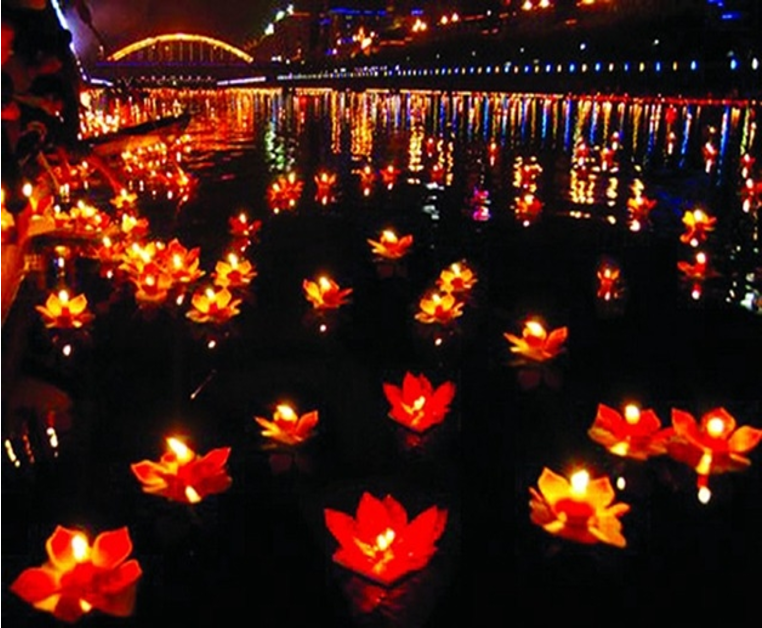
Humanitarian values
The 15th day of the 7th Lunar month is not only an occasion to remember one’s roots and express gratitude for the blessings of birth and upbringing, but it also spreads a spirit of compassion and sharing toward lost and wandering souls. This long-standing cultural tradition enriches the values of filial piety and strengthens community bonds within the spiritual life of the Vietnamese people in particular, and Asians in general.


